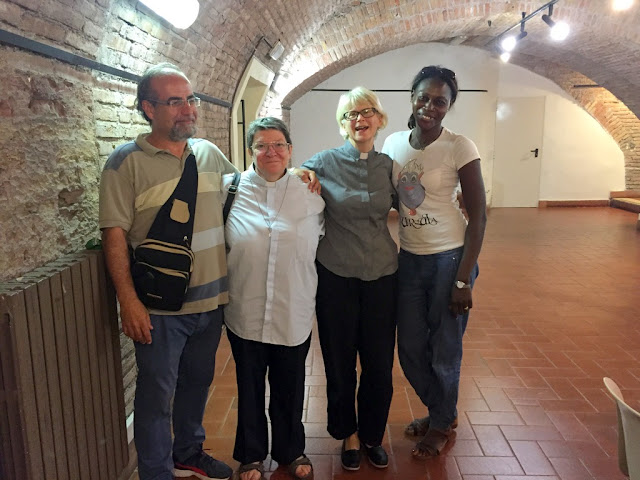"We are not heroes; we just do what our Lord expects" - Patriarch Ignatius Aphrem II of Syria

It was a privilege on Sunday to join in a prayer service held at St Mark's Coptic Orthodox Church, led by His Holiness Patriarch Mor Ignatius Aphrem II. His Holiness is in London in these days for an apostolic visit. He is the 122nd successor to St Peter in the Apostolic See of Antioch and All the East, and the Patriarch of the Syriac Orthodox Church whose headquarters are in Damascus. His Holiness is accompanied on his visit by their Eminences Archbishop Mor Severius Hawa, Archbishop of Baghdad and Basra and Mor Theophilus George Saliba, Archbishop of Mount Lebanon and Tripoli. The service was a joyful gathering of the bishops, clergy and people from three of the Oriental Orthodox Churches, the Syriac, the Coptic and the Armenian. His Eminence Archbishop Elisey of Sourozh, the Russian Orthodox Archbishop in London was also in attendance. His Holiness was born in Qamishli, a city on the border of Syria and Turkey, just about 70 kilometres from a monastery I stay in ...





